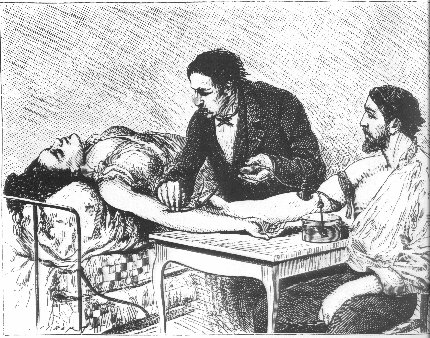So many times the cover-up seems to me to be worse than the crime. It might be something as President Nixon and Watergate or as trivial as Sarah Palin and her … um … improvisation on the ride of Paul Revere.
(Don’t try to fool a Boston girl – I know all about Paul Revere).
I think most of us can agree that the alleged sexual abuse of a young boy by a college football coach is definitely on the more serious side. And in addition to whatever reputed sexual trauma may result, there is another severe trauma. Read more on Penn State Child Abuse: The Coverup Is Worse Than The Crime…
Filed under Sexual Misconduct by on Nov 16th, 2011. Comment. ![]()
A beloved football coach – I might even say a living legend – finds his life destroyed after a luminous career. All because of alleged inaction – perhaps to shield a friend, perhaps to preserve the “old school” or for other reasons.
And the sad story of Joe Paterno is only one more chapter in how the victims who suffer are once again vilified, and how we wonder if it is even possible for justice to prevail when such tragedy is involved.
When I was in the year of training for psychotherapy, I felt fortunate to study under a knowledgeable PhD who ran the gamut from psychoanalysis to cognitive styles in his competencies.
The thing he told us was the most important thing to do during our psychotherapy training was for each of us to isolate the population with which we could not work. Read more on Penn State Sports Scandal Destroys Lives…
Filed under Sexual Misconduct by on Nov 10th, 2011. Comment. ![]()
I have sat silent for a long time, waiting for the news to come in from Fort Hood, waiting for people to understand and explain. Now, I have read and seen enough that I think I understand.
As always, my own life and experiences have been so rich and so diverse that I have an overwhelming memory or vision.
It was a California state prison; I have worked in a few. Religion was always especially popular within the prisons where I worked. I assumed, as did the mental health personnel in general, that it was because inmates felt so dehumanized and downtrodden that they could be expected to grasp onto anything that made them feel good. We knew and understood this.
I certainly maintained friendly associations with all chaplains. I considered them a bit idealistic, a bit naive, but I also considered myself that way. And in that feeling, that belief, that “give them the extra mile” feeling, I got some peace.
Still, I remember the day I was scared. I rarely ventured into the areas of religious worship, but once, just once, I happened to be out crossing the yard during one of the five daily times of Muslim prayer. I could not count the number of inmates, as they covered the yard.
Filed under Religion by on Nov 30th, 2009. 2 Comments. ![]()

